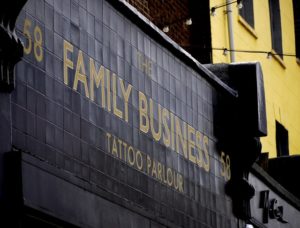
Family business, as it turns out, is big in the United States. According to the Conway Center for Family Business, family-owned businesses produce 62% of the country’s gross domestic product and make up the overwhelming majority of the companies.
Family businesses, which are defined as companies where a majority ownership belongs to a single family with two or more members that are involved in its management, can be a significant source of wealth. However, they are at higher risk for fraud according to a recent study published in the Journal of Business Ethics. Let’s look at how it happens and what can be done to reduce the risks.
The Family Challenge
The first question is why exactly family businesses are at higher risk than their nonfamily counterparts. It’s not surprising to find that fraud prevention efforts are affected by the personal relationships at play. The possibility that a family member might be capable of unethical or illegal conduct is hard to face and presents a significant obstacle to deterring fraud.
However, all businesses need a system of internal controls that reduce the likelihood of fraud. Family businesses are no exception. While exerting authority over family members can be uncomfortable, it’s a necessary step in preventing fraud.
Independent advice? Advisable.
There is always the possibility that a family member in charge could very well be defrauding the company. That’s where independent auditors and legal advisors are essential to maintaining transparency. Family businesses should source professional guidance and advisors from outside of its immediate circle of friends and relatives to ensure objectivity when evaluating their company. Audited financial statements from outside accountants are especially protective for the business and its stakeholders.
The board of directors can also provide assurance that business activities are above board. At least one member of your board of directors should be someone from outside the family who can offer insight, even when it’s hard to hear.
Keep in mind, there have been situations where all-family boards have collaborated against their company and its shareholders. These situations underscore the importance of outside assistance and oversight - collusion is harder to pull of when it requires someone outside of the family.
Punishing the perpetrator
Preventing fraud in family businesses can be made more challenging by how family-run businesses often handle allegations of fraud. Legal action may well be an option, but it’s difficult for families to bring action against their relatives and they will instead choose to save their family member from public scandal or punishment over upholding their ethical and professional obligations.
Trusted legal advisors or accountants are good resources if you are concerned a family member is committing fraud in your family-run business. They can help stage a fraud intervention, explaining the legal issues and potential consequences of their actions. However, if unsuccessful, it may be necessary to bring legal charges.
Avoid blind trust
Family-run businesses are essential to the economy. Moreover, working with family can be a rewarding experience for everyone. Ethical standards and stakeholder obligations still need to be upheld, though. To help prevent fraud, outside professional advisors are key. To learn more about how Smolin-Lupin can help your business develop internal controls, contact us for a free consultation.
